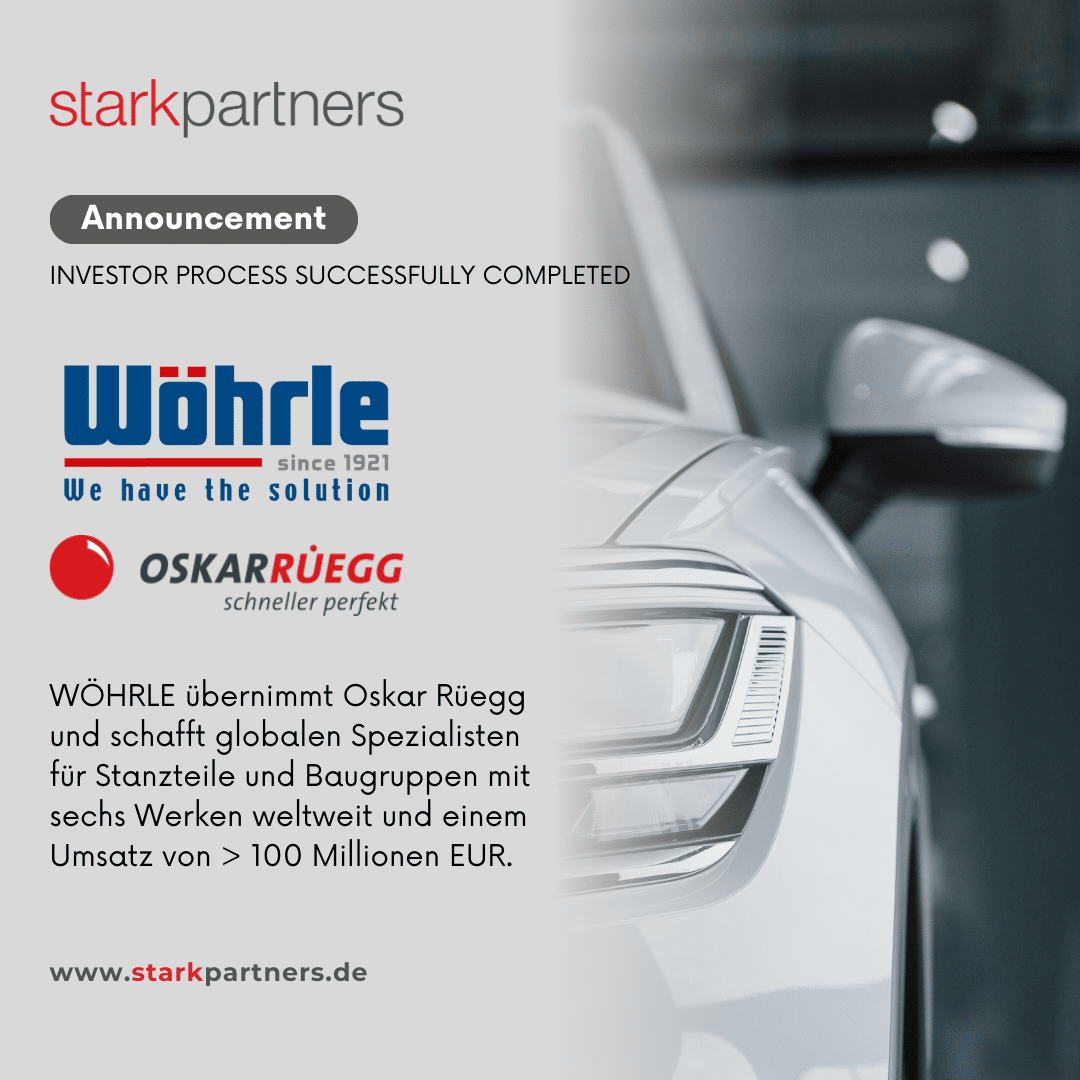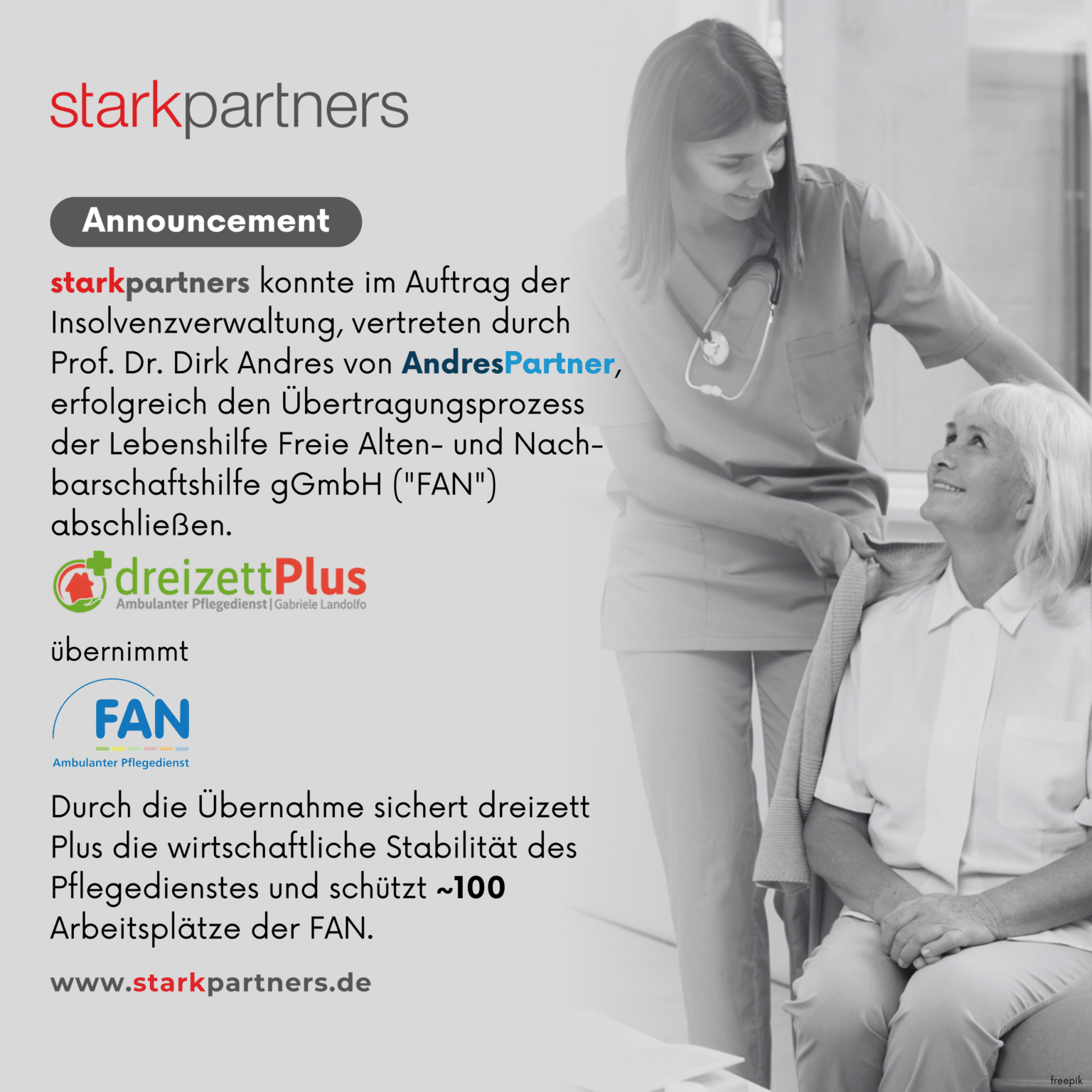M&A as a strategic compass in the pressure to transform
The German automotive industry is in an unprecedented transformation process. Electrification, software-based vehicle architectures and autonomous mobility concepts are changing not only technologies, but also entire business models. Where mechanical precision, long-term supplier relationships and just-in-time manufacturing used to dominate, topics such as modular platform strategies, embedded systems and flexible development partnerships are now coming to the fore.
Medium-sized suppliers are feeling this change particularly strongly. Whether in the field of metal processing, plastics technology, vehicle electronics or interior components - many companies are faced with the challenge of adapting their existing core business to the logic of new vehicle generations. Anyone who acts entrepreneurially in this situation recognizes that the right time for a reorientation or a well-prepared company sale can be decisive for future viability.
At starkpartners, we have been supporting entrepreneurial personalities from medium-sized businesses in the automotive sector for many years - discreetly, strategically clearly and with a deep understanding of the dynamics of this industry. Our expertise ranges from Tier 1 and Tier 2 suppliers to series manufacturers and technology-driven developers and assembly companies. We understand how supplier portals work, as well as the importance of IATF certification or the influence of PPAP processes on operational planning.
What sets us apart is our ability to economically penetrate technical business models and translate them understandably in the M context. We don't speak in empty phrases, but in the familiar tone of an entrepreneurial conversation. We know what it means when a customer accounts for 80 percent of sales. And we know the questions that arise when your own daughter would rather choose a different future than continuing the family business. Our advice does not begin with numbers, but with listening.
The automotive market is in a phase of active consolidation. Strategic buyers are looking for specialized manufacturers and system partners to equip themselves for the requirements of new vehicle generations. At the same time, private equity investors are acting at high speed to build scalable platform companies in relevant niches. Medium-sized companies with a technological focus, high process maturity and a resilient OEM connection are particularly in demand.
Our experience shows that selling a company in the automotive environment today is not only an economic but also a narrative decision. The key is how a company positions itself in the technical landscape of an OEM, what role it plays within a vehicle module and how well it can manage the transition to electromobility or software-based vehicle systems. We understand how to make these qualities visible - for buyers, investors and for the next generation. Our aim is not only to sell entrepreneurial life's work, but to put it in good hands.
Typical target companies in the automotive M context
In the current market phase, strategic buyers and financially strong investors are particularly interested in companies that have specialized skills and a robust customer structure in the automotive value chain. It is noticeable that size alone is not decisive, but relevance within complex OEM structures.
Typical target companies have in-depth series expertise in stamping technology, die casting, injection molding, laser welding or anodized aluminum components. They develop printed circuit board carriers, plastic-metal hybrids, thermal management modules or housing systems for power electronics not only according to drawings, but as co-designers together with their customers. Their organization is characterized by high process stability, for example through IATF 16949, traceability systems and smooth connection to OEM portals. They are often embedded in the supply chains of the major manufacturing regions and sometimes have production sites in cost-competitive regions such as Romania, Serbia or Turkey. At the same time, they secure their valuation stability through moderate diversification – for example in railway technology or medical technology.
Valuation dynamics market logic: Quality beats quantity
Valuations in the automotive sector do not follow a general multiplier logic. The key is the content quality of the business model. Buyers pay attention to the position a company occupies in the component assembly – whether it is a simple manufacturing or a safety-relevant, function-integrated component. The perspective of a product in the lifecycle of a vehicle platform influences the purchase price as well as the customer structure or the engineering depth.
Particular attention is paid to the so-called tooling backlog – i.e. the volume of already placed call-offs and follow-up tools – as well as the ability to reliably serve them across series. A company that can prove its role as a partner in the OEM development process achieves significantly higher valuations than a classic manufacturing company without technological differentiation. Substitution risks – for example with classic combustion components – are also intensively examined. Future viability is evident where work is already being carried out on HV battery frames, inverter housings or high-voltage connectors.
What is your company worth?
Receive an initial indicative valuation – simple, confidential and specially tailored to medium-sized companies.





